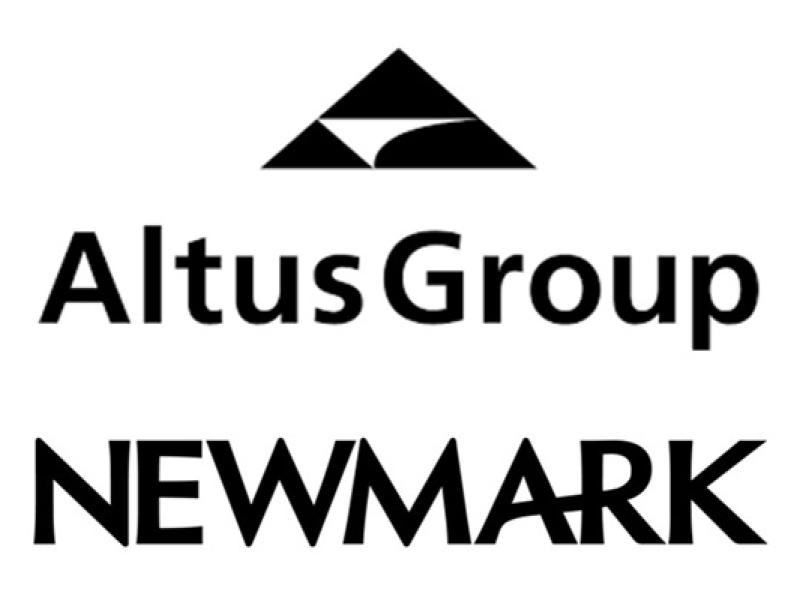
Chuck We, senior vice-president, Western Canada, Hudson Pacific Properties. (Courtesy Hudson Pacific)
A high-speed rail connecting Vancouver, Seattle and Portland would help develop a so-called Cascadia mega-region comprised of hub cities, boosting economic growth and creating smart density instead of sprawl. As discussion about the long-anticipated region continues, talk of a connective rail system has become a hot topic for major stakeholders, including the development industry and tech sector.
The potential of a transit-oriented mega-region was therefore the subject of a panel discussion at the recent Vancouver Real Estate Forum. The proposal was introduced by Greg D’Avignon, president and chief executive officer of the Business Council of B.C., who gave an overview of the report funded by the governments of B.C., Washington and Oregon, as well as Microsoft.
A rapid rail, similar to what European commuters have long enjoyed, would reduce travel times between each city to under an hour.
The capital cost of the system is estimated at around $42 billion at the high end, if construction began in 2025.
Washington State Governor Jay Inslee is a keen supporter and has commented previously the system would unite the cities in shared goals of economic development, affordable housing, new jobs, tourism, multimodal connections and increased collaboration.
B.C. developers and investors have long had a foothold in the Seattle region, so not surprisingly the panel participants are on board with the proposal. Vancouver region developers, with decades of condo development experience, are competing with each other in the Seattle market, whose fundamentals include a growing key demographic, a strong economy and an easier approvals process than in Vancouver.
How would Cascadia benefit Vancouver?
What is less certain is what the cross-border arrangement would bring to the Vancouver region and how Portland fits into it.
D’Avignon said he’d seen growing momentum for the rail in the last four years from hundreds of groups, which prompted the report Cascadia Vision 2050. The idea is to become the first sustainable mega-region on the continent, with an estimated 3.6 million additional people arriving by 2050, on top of the nine million already living in the region.
He said 800,000 new jobs have been added to the market in the last decade.
Chuck We, senior vice-president, Western Canada, for Los Angeles based Hudson Pacific Properties, said the proposal makes sense for his company, which is already active in the mega-region of Northern California.
“It lines up well with what we see as a Vancouver, Seattle, San Francisco corridor. Portland is coming. But you could see the ties and connections between Vancouver and Seattle forming. I think we have more similarities to Seattle in a lot of ways than even Calgary and Edmonton,” We said.
Walter Pela, Greater Vancouver Area managing partner for KPMG, referred to his company’s report on the best places to do business, to be released this month. It shows out of 29 major metropolises in North America, Vancouver and Seattle rank near the middle of the pack when looking at business environment, tax costs, labour costs and other factors. Pela called the rail initiative important to increase the competitiveness of Seattle and Vancouver.
“We rank very well in labour costs, which is part of the reason large tech companies are coming up here. On the flip side, Seattle has a much bigger and more robust business environment. . . . Anything we can do to consolidate the region. I compare it to the Valley in San Francisco, and now the emergence of Texas, with Dallas and Austin. . . . People are more mobile and will be looking at all these factors and deciding where to expand next. So yeah, big supporter.”
Vancouver developers drawn to Seattle

Panelists at the Vancouver Real Estate Forum debated the merits of a high-speed rail link in the so-called 500-kilometre, Cascadia corridor, linking Vancouver, Seattle and Portland. (Google Maps)
High-speed train or not, Seattle is a draw for Vancouver-area developers for more than its tech sector, said Robert Duteau, senior vice-president, Grosvenor Americas. Duteau said his company was also “drinking the Kool-Aid on Cascadia.”
“We are a global investor and developer, well-established in the U.S. already . . . what’s really attractive to us is the Seattle demographic. Everybody talks about the tech sector, but there is a lot more behind the demographic in Seattle than just tech.
“They have one of the most active ports in North America and there is a great industrial business there. We like the fundamentals. One of the main factors for us is there is far less government interference in the Seattle market than there is in the Vancouver market, with all the measures that the B.C. government continues to influence on the real estate market here.”
Anthem Properties president and CEO Eric Carlson agreed Seattle is a draw regardless of any link to Vancouver, but questioned the idea of true synergy between the two cities. He was supportive of the initiative, but also the most skeptical on the benefits to B.C.
“As real estate developers, we care about job growth and population growth and household formation, all those things drive demand for the spaces we create. And in Seattle, there are a lot of those factors; it’s very positive, and good for growth.
“I wouldn’t invest in Seattle because it’s going to be connected to Vancouver because they have a high-speed train and it’s created interdependence between those two cities, despite the obstacles that concept would face. I would invest in Seattle because of its own fundamentals. It’s a broader market and region which I think is completely separate from Metro Vancouver.”
Cross-border concerns
Carlson questioned whether the Cascadia collaboration would be meaningful for Greater Vancouver when navigating two entirely separate political frameworks. He’s also skeptical about the depth of commitment from big American tech companies in the long run, in a shifting social and political landscape.
“From a Vancouver perspective, send those technology offices up here. We want them for Chuck’s office buildings and Rob’s condo buildings and Eric’s condos and Walter’s clients. But, do they really want us?
“From a developer’s perspective, I like simplicity. . . . If we want to deal with housing access and affordability, climate change and environment and pollution, and transportation so people don’t waste their lives sitting in cars, is Cascadia the answer to that? Or are a more robust metropolitan region framework in Seattle and another one in Vancouver more important?
“Should those two things be the highest priority and then once that’s established, then they connect via high speed rail at a cost of $42 billion plus cost overruns?”
He also wondered why Portland, with a much smaller market, was part of the discussion.
D’Avignon said the synergy between Vancouver and Seattle would be the driver going forward. He cited about 200 U.S. companies already in the region in the digital super-cluster, companies that scale in B.C., building global products. Vancouver has changed from a low-cost player to a diverse talent pool, while Seattle is struggling with rapid growth and the resulting congestion.
Urban cores vs. hub cities
Moderator Norm Taylor, CMLS Capital vice-president and managing director, B.C. region, pointed out the mega-region would be a step away from urbanization and toward hub cities such as Abbotsford. He asked the panel whether they were supporting such a trend.
Hudson Pacific’s We said they are an urban core-focused REIT, but he believes in complementary sectors, such as the city of Surrey.
“You have to step back and take that 30-year view. 2050 isn’t that far away,” said We. “That’s mid-career for my kids. Do you want them to have this same conversation in 30 years, or do you want them to have opportunities so they can grow and go to one of these hub cities or go to school in Seattle because they have got that permit and can come back and work for that same company in Vancouver?
“There is this chicken and egging around all this, but I think it’s worth having this conversation today.”
Duteau pointed out Grosvenor purchased Annacis Island in 1952 and the industrial vacancy rate in Vancouver is now under one per cent — a tight market not balanced in any way. He said Grosvenor was looking at Abbotsford, Langley and Surrey on the industrial side. Last year, Grosvenor purchased an eight-acre transit-oriented site across from Burnaby’s Brentwood Town Centre, planning to build several mixed-use towers.
“I think the fundamentals of Burnaby are very strong, its proximity to the Lower Mainland, and it’s reached a critical mass where there is significant housing and amenities in that area. We see great opportunity in these hub cities,” Duteau said.
Another factor for Cascadia is the work-from-home trend, which might diminish the need for a high-speed rail link, said Taylor.
Pela said KPMG surveys show people will be back at the office but office spaces would be used differently, for mentorship and onboarding. Flexible office arrangements would be more important than in the past, but he remained a believer in the need for office space, he said. The presence of big tech companies in Vancouver is building the new economy in B.C. and there is already a synergy between the two urban centres.
Thus, the rail line makes sense.
“It’s not just about big tech coming up to Vancouver and accessing our talent, it’s the market opportunities and the global platform that the larger companies provide for B.C. businesses.”











